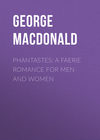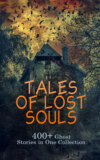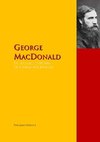Читать книгу: «David Elginbrod», страница 4
CHAPTER VIII. A SUNDAY MORNING
It is the property of good and sound knowledge, to putrifie and dissolve into a number of subtle, idle, unwholesome, and (as I may tearme them) vermiculate questions; which have indeed a kinde of quicknesse, and life of spirite, but no soundnesse of matter, or goodnesse of quality.—LORD BACON.—Advancement of Learning.
The following morning, the laird’s family went to church as usual, and Hugh went with them. Their walk was first across fields, by pleasant footpaths; and then up the valley of a little noisy stream, that obstinately refused to keep Scotch Sabbath, praising the Lord after its own fashion. They emerged into rather a bleak country before reaching the church, which was quite new, and perched on a barren eminence, that it might be as conspicuous by its position, as it was remarkable for its ugliness. One grand aim of the reformers of the Scottish ecclesiastical modes, appears to have been to keep the worship pure and the worshippers sincere, by embodying the whole in the ugliest forms that could be associated with the name of Christianity. It might be wished, however, that some of their followers, and amongst them the clergyman of the church in question, had been content to stop there; and had left the object of worship, as represented by them, in the possession of some lovable attribute; so as not to require a man to love that which is unlovable, or worship that which is not honourable—in a word, to bow down before that which is not divine. The cause of this degeneracy they share in common with the followers of all other great men as well as of Calvin. They take up what their leader, urged by the necessity of the time, spoke loudest, never heeding what he loved most; and then work the former out to a logical perdition of everything belonging to the latter.
Hugh, however, thought it was all right: for he had the same good reasons, and no other, for receiving it all, that a Mohammedan or a Buddhist has for holding his opinions; namely, that he had heard those doctrines, and those alone, from his earliest childhood. He was therefore a good deal startled when, having, on his way home, strayed from the laird’s party towards David’s, he heard the latter say to Margaret as he came up:
“Dinna ye believe, my bonny doo, ‘at there’s ony mak’ ups or mak’ shifts wi’ Him. He’s aye bringin’ things to the licht, no covenin’ them up and lattin them rot, an’ the moth tak’ them. He sees us jist as we are, and ca’s us jist what we are. It wad be an ill day for a’ o’s, Maggy, my doo, gin he war to close his een to oor sins, an’ ca’ us just in his sicht, whan we cudna possibly be just in oor ain or in ony ither body’s, no to say his.”
“The Lord preserve’s, Dawvid Elginbrod! Dinna ye believe i’ the doctrine o’ Justification by Faith, an’ you a’maist made an elder o’?”
Janet was the respondent, of course, Margaret listening in silence.
“Ou ay, I believe in’t, nae doot; but, troth! the minister, honest man, near-han’ gart me disbelieve in’t a’thegither wi’ his gran’ sermon this mornin’, about imputit richteousness, an’ a clean robe hidin’ a foul skin or a crookit back. Na, na. May Him ‘at woosh the feet o’ his friens, wash us a’thegither, and straucht oor crookit banes, till we’re clean and weel-faured like his ain bonny sel’.”
“Weel, Dawvid—but that’s sanctificaition, ye ken.”
“Ca’t ony name ‘at you or the minister likes, Janet, my woman. I daursay there’s neither o’ ye far wrang after a’; only this is jist my opingan aboot it in sma’—that that man, and that man only, is justifeed, wha pits himsel’ into the Lord’s han’s to sanctifee him. Noo! An’ that’ll no be dune by pittin’ a robe o’ richteousness upo’ him, afore he’s gotten a clean skin aneath’t. As gin a father cudna bide to see the puir scabbit skin o’ his ain wee bit bairnie, ay, or o’ his prodigal son either, but bude to hap it a’ up afore he cud lat it come near him! Ahva!”
Here Hugh ventured to interpose a remark.
“But you don’t think, Mr. Elginbrod, that the minister intended to say that justification left a man at liberty to sin, or that the robe of Christ’s righteousness would hide him from the work of the Spirit?”
“Na; but there is a notion in’t o’ hidin’ frae God himsel’. I’ll tell ye what it is Mr. Sutherlan’: the minister’s a’ richt in himsel’, an’ sae’s my Janet here, an’ mony mair; an’ aiblins there’s a kin’ o’ trowth in a’ ‘at they say; but this is my quarrel wi’ a’ thae words an’ words an’ airguments, an’ seemilies as they ca’ them, an’ doctrines, an’ a’ that—they jist haud a puir body at airm’s lenth oot ower frae God himsel’. An’ they raise a mist an’ a stour a’ aboot him, ‘at the puir bairn canna see the Father himsel’, stan’in’ wi’ his airms streekit oot as wide’s the heavens, to tak’ the worn crater,—and the mair sinner, the mair welcome,—hame to his verra hert. Gin a body wad lea’ a’ that, and jist get fowk persuâdit to speyk a word or twa to God him lane, the loss, in my opingan, wad be unco sma’, and the gain verra great.”
Even Janet dared not reply to the solemnity of this speech; for the seer-like look was upon David’s face, and the tears had gathered in his eyes and dimmed their blue. A kind of tremulous pathetic smile flickered about his beautifully curved mouth, like the glimmer of water in a valley, betwixt the lofty aquiline nose and the powerful but finely modelled chin. It seemed as if he dared not let the smile break out, lest it should be followed instantly by a burst of tears.
Margaret went close up to her father and took his hand as if she had been still a child, while Janet walked reverentially by him on the other side. It must not be supposed that Janet felt any uneasiness about her husband’s opinions, although she never hesitated to utter what she considered her common-sense notions, in attempted modification of some of the more extreme of them. The fact was that, if he was wrong, Janet did not care to be right; and if he was right, Janet was sure to be; “for,” said she—and in spirit, if not in the letter, it was quite true—“I never mint at contradickin’ him. My man sall hae his ain get, that sall he.” But she had one especial grudge at his opinions; which was, that it must have been in consequence of them that he had declined, with a queer smile, the honourable position of Elder of the Kirk; for which Janet considered him, notwithstanding his opinions, immeasurably more fitted than any other man “in the haill country-side—ye may add Scotlan’ forby.” The fact of his having been requested to fill the vacant place of Elder, is proof enough that David was not in the habit of giving open expression to his opinions. He was looked upon as a douce man, long-headed enough, and somewhat precise in the exaction of the laird’s rights, but open-hearted and open-handed with what was his own. Every one respected him, and felt kindly towards him; some were a little afraid of him; but few suspected him of being religious beyond the degree which is commonly supposed to be the general inheritance of Scotchmen, possibly in virtue of their being brought up upon oatmeal porridge and the Shorter Catechism.
Hugh walked behind the party for a short way, contemplating them in their Sunday clothes: David wore a suit of fine black cloth. He then turned to rejoin the laird’s company. Mrs. Glasford was questioning her boys, in an intermittent and desultory fashion, about the sermon.
“An’ what was the fourth heid, can ye tell me, Willie?”
Willie, the eldest, who had carefully impressed the fourth head upon his memory, and had been anxiously waiting for an opportunity of bringing it out, replied at once:
“Fourthly: The various appellations by which those who have indued the robe of righteousness are designated in Holy Writ.”
“Weel done, Willie!” cried the laird.
“That’s richt, Willie,” said his mother. Then turning to the younger, whose attention was attracted by a strange bird in the hedge in front. “An’ what called he them, Johnnie, that put on the robe?” she asked.
“Whited sepulchres,” answered Johnnie, indebted for his wit to his wool-gathering.
This put an end to the catechising. Mrs. Glasford glanced round at Hugh, whose defection she had seen with indignation, and who, waiting for them by the roadside, had heard the last question and reply, with an expression that seemed to attribute any defect in the answer, entirely to the carelessness of the tutor, and the withdrawal of his energies from her boys to that “saucy quean, Meg Elginbrod.”
CHAPTER IX. NATURE
When the Soul is kindled or enlightened by the Holy Ghost, then it beholds what God its Father does, as a Son beholds what his Father does at Home in his own House.—JACOB BEHMEN’S Aurora—Law’s Translation.
Margaret began to read Wordsworth, slowly at first, but soon with greater facility. Ere long she perceived that she had found a friend; for not only did he sympathize with her in her love for nature, putting many vague feelings into thoughts, and many thoughts into words for her, but he introduced her to nature in many altogether new aspects, and taught her to regard it in ways which had hitherto been unknown to her. Not only was the pine wood now dearer to her than before, but its mystery seemed more sacred, and, at the same time, more likely to be one day solved. She felt far more assuredly the presence of a spirit in nature,
“Whose dwelling is the light of setting suns,
And the round ocean, and the living air;”
for he taught her to take wider views of nature, and to perceive and feel the expressions of more extended aspects of the world around her. The purple hill-side was almost as dear to her as the fir-wood now; and the star that crowned its summit at eve, sparkled an especial message to her, before it went on its way up the blue. She extended her rambles in all directions, and began to get with the neighbours the character of an idle girl. Little they knew how early she rose, and how diligently she did her share of the work, urged by desire to read the word of God in his own handwriting; or rather, to pore upon that expression of the face of God, which, however little a man may think of it, yet sinks so deeply into his nature, and moulds it towards its own likeness.
Nature was doing for Margaret what she had done before for Wordsworth’s Lucy: she was making of her “a lady of her own.” She grew taller and more graceful. The lasting quiet of her face began to look as if it were ever upon the point of blossoming into an expression of lovely feeling. The principal change was in her mouth, which became delicate and tender in its curves, the lips seeming to kiss each other for very sweetness. But I am anticipating these changes, for it took a far longer time to perfect them than has yet been occupied by my story.
But even her mother was not altogether proof against the appearance of listlessness and idleness which Margaret’s behaviour sometimes wore to her eyes; nor could she quite understand or excuse her long lonely walks; so that now and then she could not help addressing her after this fashion:
“Meg! Meg! ye do try my patience, lass, idlin’ awa’ yer time that get. It’s an awfu’ wastery o’ time, what wi’ beuks, an’ what wi’ stravaguin’, an’ what wi’ naething ava. Jist pit yer han’ to this kirn noo, like a gude bairn.”
Margaret would obey her mother instantly, but with a look of silent expostulation which her mother could not resist; sometimes, perhaps, if the words were sharper than usual, with symptoms of gathering tears; upon which Janet would say, with her honest smile of sweet relenting,
“Hootoots, bairn! never heed me. My bark’s aye waur nor my bite; ye ken that.”
Then Margaret’s face would brighten at once, and she would work hard at whatever her mother set her to do, till it was finished; upon which her mother would be more glad than she, and in no haste to impose any further labour out of the usual routine.
In the course of reading Wordsworth, Margaret had frequent occasion to apply to Hugh for help. These occasions, however, generally involved no more than small external difficulties, which prevented her from taking in the scope of a passage. Hugh was always able to meet these, and Margaret supposed that the whole of the light which flashed upon her mind when they were removed, was poured upon the page by the wisdom of her tutor; never dreaming—such was her humility with regard to herself, and her reverence towards him—that it came from the depths of her own lucent nature, ready to perceive what the poet came prepared to show. Now and then, it is true, she applied to him with difficulties in which he was incapable of aiding her; but she put down her failure in discovering the meaning, after all which it must be confessed he sometimes tried to say, to her own stupidity or peculiarity—never to his incapacity. She had been helped to so much by his superior acquirements, and his real gift for communicating what he thoroughly understood; he had been so entirely her guide to knowledge, that she would at once have felt self-condemned of impiety—in the old meaning of the word—if she had doubted for a moment his ability to understand or explain any difficulty which she could place clearly before him.
By-and-by he began to lend her harder, that is, more purely intellectual books. He was himself preparing for the class of Moral Philosophy and Metaphysics; and he chose for her some of the simpler of his books on these subjects—of course all of the Scotch school—beginning with Abercrombie’s Intellectual Powers. She took this eagerly, and evidently read it with great attention.
One evening in the end of summer, Hugh climbed a waste heathery hill that lay behind the house of Turriepuffit, and overlooked a great part of the neighbouring country, the peaks of some of the greatest of the Scotch mountains being visible from its top. Here he intended to wait for the sunset. He threw himself on the heather, that most delightful and luxurious of all couches, supporting the body with a kindly upholding of every part; and there he lay in the great slumberous sunlight of the late afternoon, with the blue heavens, into which he was gazing full up, closing down upon him, as the light descended the side of the sky. He fell fast asleep. If ever there be an excuse for falling asleep out of bed, surely it is when stretched at full length upon heather in bloom. When he awoke, the last of the sunset was dying away; and between him and the sunset sat Margaret, book in hand, waiting apparently for his waking. He lay still for a few minutes, to come to himself before she should see he was awake. But she rose at the moment, and drawing near very quietly, looked down upon him with her sweet sunset face, to see whether or not he was beginning to rouse, for she feared to let him lie much longer after sundown. Finding him awake, she drew back again without a word, and sat down as before with her book. At length he rose, and, approaching her, said—
“Well, Margaret, what book are you at now?”
“Dr. Abercrombie, sir,” replied Margaret.
“How do you like it?”
“Verra weel for some things. It makes a body think; but not a’thegither as I like to think either.”
It will be observed that Margaret’s speech had begun to improve, that is, to be more like English.
“What is the matter with it?”
“Weel, ye see, sir, it taks a body a’ to bits like, and never pits them together again. An’ it seems to me that a body’s min’ or soul, or whatever it may be called—but it’s jist a body’s ain sel’—can no more be ta’en to pieces like, than you could tak’ that red licht there oot o’ the blue, or the haill sunset oot o’ the heavens an’ earth. It may be a’ verra weel, Mr. Sutherland, but oh! it’s no like this!”
And Margaret looked around her from the hill-top, and then up into the heavens, where the stars were beginning to crack the blue with their thin, steely sparkle.
“It seems to me to tak’ a’ the poetry oot o’ us, Mr. Sutherland.”
“Well, well,” said Hugh, with a smile, “you must just go to Wordsworth to put it in again; or to set you again up after Dr. Abercrombie has demolished you.”
“Na, na, sir, he sanna demolish me: nor I winna trouble Mr. Wordsworth to put the poetry into me again. A’ the power on earth shanna tak’ that oot o’ me, gin it be God’s will; for it’s his ain gift, Mr. Sutherland, ye ken.”
“Of course, of course,” replied Hugh, who very likely thought this too serious a way of speaking of poetry, and therefore, perhaps, rather an irreverent way of speaking of God; for he saw neither the divine in poetry, nor the human in God. Could he be said to believe that God made man, when he did not believe that God created poetry—and yet loved it as he did? It was to him only a grand invention of humanity in its loftiest development. In this development, then, he must have considered humanity as farthest from its origin; and God as the creator of savages, caring nothing for poets or their work.
They turned, as by common consent, to go down the hill together.
“Shall I take charge of the offending volume? You will not care to finish it, I fear,” said Hugh.
“No, sir, if you please. I never like to leave onything unfinished. I’ll read ilka word in’t. I fancy the thing ‘at sets me against it, is mostly this; that, readin’ it alang wi’ Euclid, I canna help aye thinkin’ o’ my ain min’ as gin it were in some geometrical shape or ither, whiles ane an’ whiles anither; and syne I try to draw lines an’ separate this power frae that power, the memory frae the jeedgement, an’ the imagination frae the rizzon; an’ syne I try to pit them a’ thegither again in their relations to ane anither. And this aye takes the shape o’ some proposition or ither, generally i’ the second beuk. It near-han’ dazes me whiles. I fancy gin’ I understood the pairts o’ the sphere, it would be mair to the purpose; but I wat I wish I were clear o’t a’thegither.”
Hugh had had some experiences of a similar kind himself, though not at all to the same extent. He could therefore understand her.
“You must just try to keep the things altogether apart,” said he, “and not think of the two sciences at once.”
“But I canna help it,” she replied. “I suppose you can, sir, because ye’re a man. My father can understan’ things ten times better nor me an’ my mother. But nae sooner do I begin to read and think about it, than up comes ane o’ thae parallelograms, an’ nothing will driv’t oot o’ my head again, but a verse or twa o’ Coleridge or Wordsworth.”
Hugh immediately began to repeat the first poem of the latter that occurred to him:
“I wandered lonely as a cloud.”
She listened, walking along with her eyes fixed on the ground; and when he had finished, gave a sigh of delight and relief—all the comment she uttered. She seemed never to find it necessary to say what she felt; least of all when the feeling was a pleasant one; for then it was enough for itself. This was only the second time since their acquaintance, that she had spoken of her feelings at all; and in this case they were of a purely intellectual origin. It is to be observed, however, that in both cases she had taken pains to explain thoroughly what she meant, as far as she was able.
It was dark before they reached home, at least as dark as it ever is at this season of the year in the north. They found David looking out with some slight anxiety for his daughter’s return, for she was seldom out so late as this. In nothing could the true relation between them have been more evident than in the entire absence from her manner of any embarrassment when she met her father. She went up to him and told him all about finding Mr. Sutherland asleep on the hill, and waiting beside him till he woke, that she might walk home with him. Her father seemed perfectly content with an explanation which he had not sought, and, turning to Hugh, said, smiling:
“Weel, no to be troublesome, Mr. Sutherlan’, ye maun gie the auld man a turn as weel as the young lass. We didna expec ye the nicht, but I’m sair puzzled wi’ a sma’ eneuch matter on my sklet in there. Will you no come in and gie me a lift?”
“With all my heart,” said Sutherland. So there were five lessons in that week.
When Hugh entered the cottage he had a fine sprig of heather in his hand, which he laid on the table.
He had the weakness of being proud of small discoveries—the tinier the better; and was always sharpening his senses, as well as his intellect, to a fine point, in order to make them. I fear that by these means he shut out some great ones, which could not enter during such a concentration of the faculties. He would stand listening to the sound of goose-feet upon the road, and watch how those webs laid hold of the earth like a hand. He would struggle to enter into their feelings in folding their wings properly on their backs. He would calculate, on chemical and arithmetical grounds, whether one might not hear the nocturnal growth of plants in the tropics. He was quite elated by the discovery, as he considered it, that Shakspeare named his two officers of the watch, Dogberry and Verjuice; the poisonous Dogberry, and the acid liquor of green fruits, affording suitable names for the stupidly innocuous constables, in a play the very essence of which is Much Ado About Nothing. Another of his discoveries he had, during their last lesson, unfolded to David, who had certainly contemplated it with interest. It was, that the original forms of the Arabic numerals were these:
1.2.3.4.5.6.7.8.9. {original text has a picture}
the number for which each figure stands being indicated by the number of straight lines employed in forming that numeral. I fear the comparative anatomy of figures gives no countenance to the discovery which Hugh flattered himself he had made.
After he had helped David out of his difficulty, he took up the heather, and stripping off the bells, shook them in his hand at Margaret’s ear. A half smile, like the moonlight of laughter, dawned on her face; and she listened with something of the same expression with which a child listens to the message from the sea, inclosed in a twisted shell. He did the same at David’s ear next.
“Eh, man! that’s a bonny wee soun’! It’s jist like sma’ sheep-bells—fairy-sheep, I reckon, Maggy, my doo.”
“Lat me hearken as weel,” said Janet.
Hugh obeyed. She laughed.
“It’s naething but a reestlin’. I wad raither hear the sheep baain’, or the kye routin’.”
“Eh, Mr. Sutherlan’! but, ye hae a gleg ee an’ a sharp lug. Weel, the warld’s fu’ o’ bonny sichts and souns, doon to the verra sma’est. The Lord lats naething gang. I wadna wonner noo but there micht be thousands sic like, ower sma’ a’thegither for human ears, jist as we ken there are creatures as perfect in beowty as ony we see, but far ower sma’ for our een wintin’ the glass. But for my pairt, I aye like to see a heap o’ things at ance, an’ tak’ them a’ in thegither, an’ see them playin’ into ane anither’s han’ like. I was jist thinkin’, as I came hame the nicht in the sinset, hoo it wad hae been naewise sae complete, wi’ a’ its red an’ gowd an’ green, gin it hadna been for the cauld blue east ahint it, wi’ the twa-three shiverin’ starnies leukin’ through’t. An’ doubtless the warld to come ‘ill be a’ the warmer to them ‘at hadna ower muckle happin here. But I’m jist haverin’, clean haverin’, Mr. Sutherlan’,” concluded David, with a smile of apologetic humour.
“I suppose you could easily believe with Plato, David, that the planets make a grand choral music as they roll about the heavens, only that as some sounds are too small, so that is too loud for us to hear.”
“I cud weel believe that,” was David’s unhesitating answer. Margaret looked as if she not only could believe it, but would be delighted to know that it was true. Neither Janet nor Hugh gave any indication of feeling on the matter.
Покупайте книги и получайте бонусы в Литрес, Читай-городе и Буквоеде.
Участвовать в бонусной программе




















